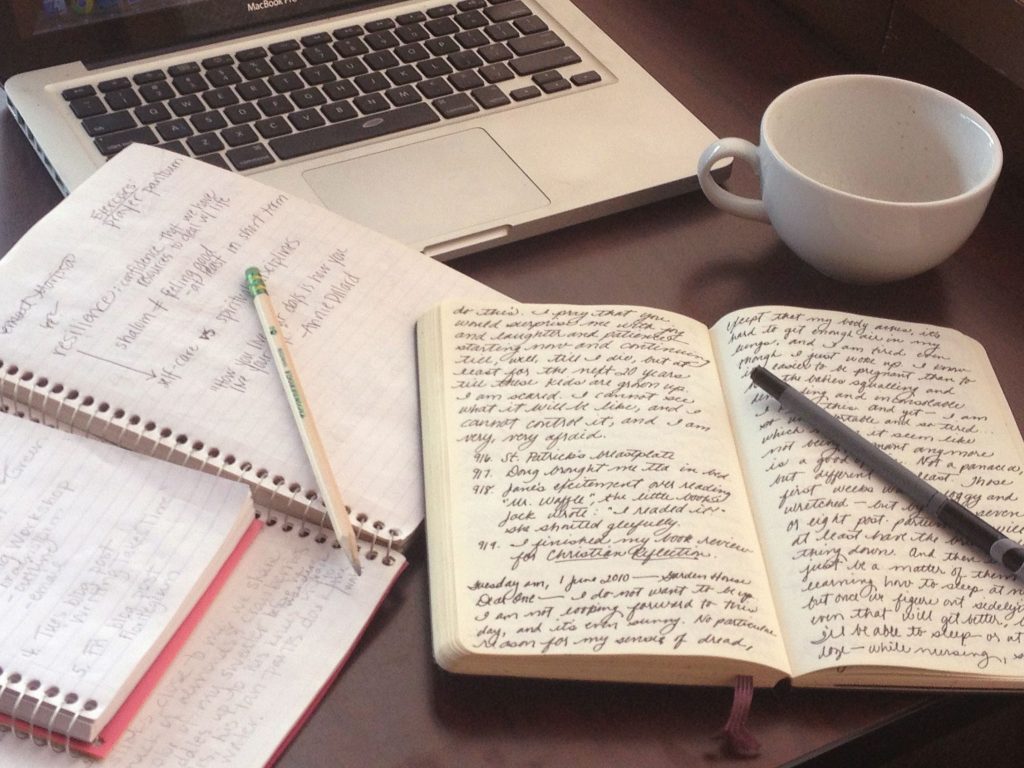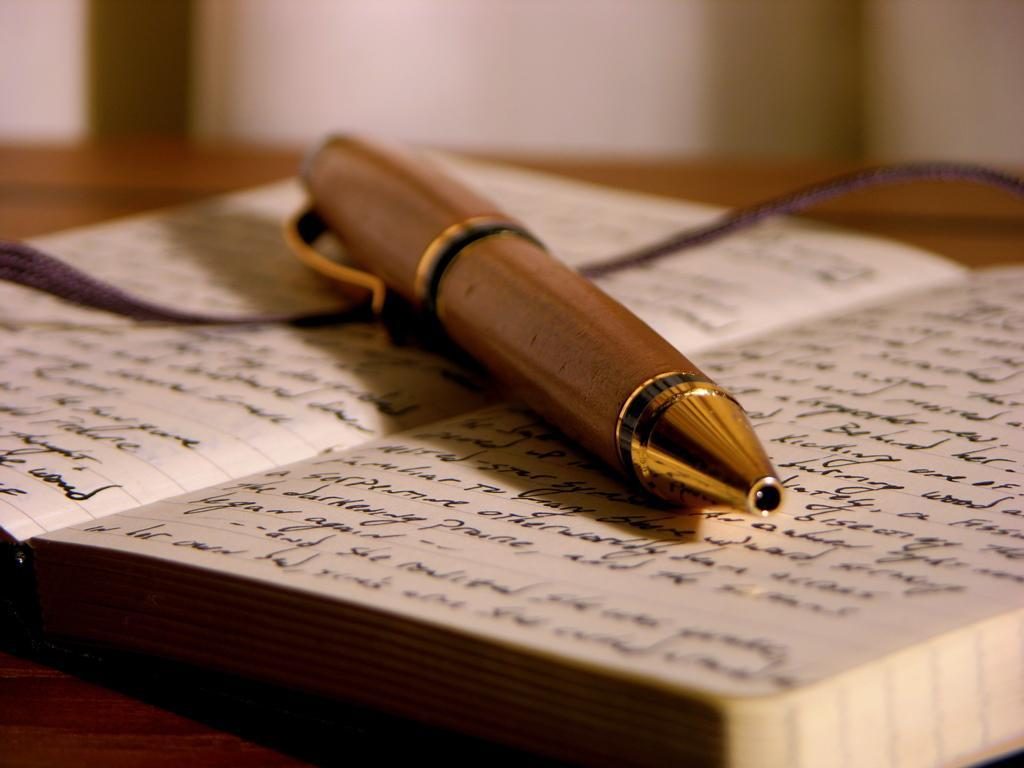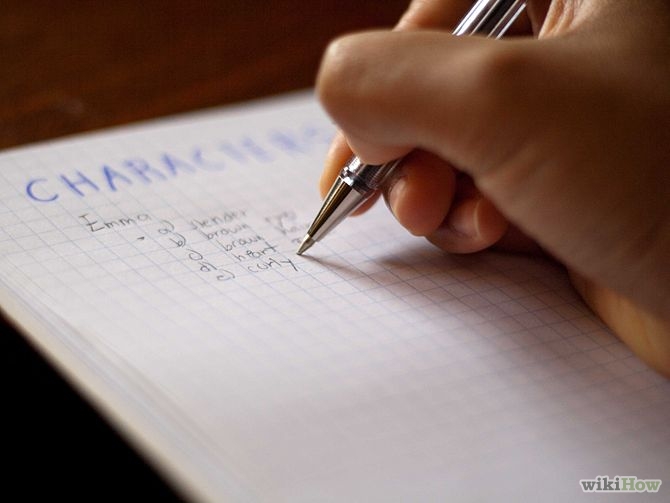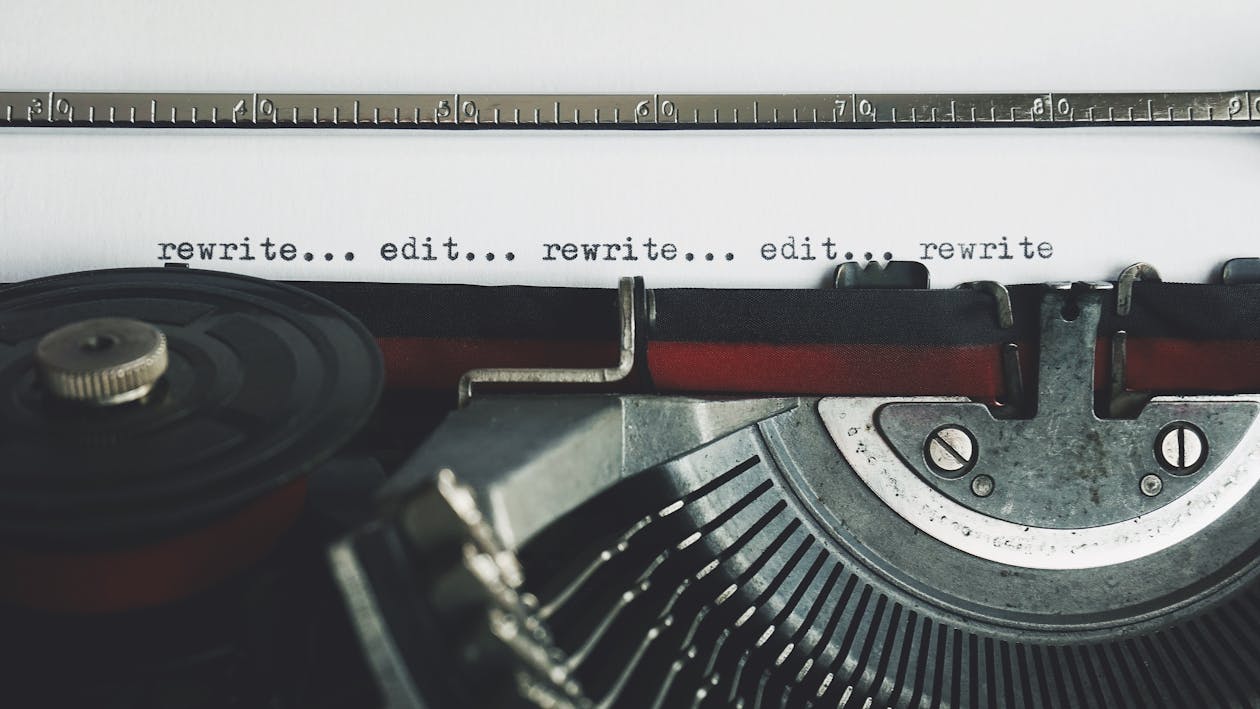Here you can see all of my currently available creative writing courses and workshops. Each one is available in either an in-person format or via a live, online webinar. If you are an event organizer and would like for me speak at your author conference, Con, writing group, library, or bookstore, then send an e-mail to lindsay@lindsayschopfer.com with the subject “Writing Course Request”.
 Crafting A Complete Story – A Four-Part Workshop Series
Crafting A Complete Story – A Four-Part Workshop Series
A complete story has it all. A strong hook in the beginning, ongoing conflicts and questions to keep the reader interested, and an ending that is both satisfying and leaves the reader wanting more. In this four-part workshop series, participants will learn skills like identifying essential establishing information, writing scenes that continually flow between conflict and resolution, and setting up potential sequels while still crafting endings that are emotionally satisfying.
NOTE: While the workshops in this series work best when taken together, they can also be taken separately. This workshop series also works well as a single master class.
Where To Start Your Story
A great story must start strong to get the reader’s attention. Each novel’s beginning must be a balancing act of description, backstory, and action. Participants in this workshop will learn how much backstory to include in their novel, how to identify essential establishing information, and how to effectively drop their readers into the action.
Unlocking Character Motivation
Motivation is the fuel that allows a character to make the long journey from a story’s beginning to its ending. No other character trait will prove more useful to the writer in determining a story’s structure, pacing, mood, and theme. Participants in this course will learn how to identify character needs, how to create motivation for both protagonists and antagonists, how to increase pacing through motivation, and how to make a character’s motivation evolve throughout the story.
Make Your Novel A Page-Turner
We all know novels need strong beginnings, but what about the rest of the story? An effective story keeps the reader up late into the night because they just can’t put it down. Participants in this workshop will learn how to establish a pattern of conflicts and resolutions throughout the story, how to balance description with action, and how to build up to the story’s climax.
Writing Satisfying Endings
A good ending can make a reader beg for more. A bad ending can leave a reader feeling betrayed. This spoiler-free (mostly) workshop will examine what it takes to write an ending that will leave the reader both satisfied and hungry for more. Participants in this course will learn the three traits of a satisfying ending, where to go after the climax, and how to set up a series of books as opposed to finishing a standalone novel with series potential.
 A Novel in Four Drafts – A Four-Part Workshop Series
A Novel in Four Drafts – A Four-Part Workshop Series
Every draft of a novel can be more than just another version of the manuscript. It can be an ongoing evolution that keeps improving with each stage until the work is finally the best version of itself. Writers in all stages of production will benefit from this detailed and engaging look at the writing and revision process. Participants in this course will learn what they should focus on for each draft, techniques for effective editing, and how to complete that book that never seems to be good enough.
NOTE: While the workshops in this series work best when taken together, they can also be taken separately. This workshop series also works well as a single master class.
The First Draft – Just Get It Down
No amount of dreaming will make a first draft happen. It takes effort, time, and dedication to create the raw material that will eventually become a finished story. Participants in this class will learn how to handle writers block, how to postpone the need to edit, and how to course-correct midway through the process.
The Second Draft – Making the Big Changes
It’s a mistake to call a story done after the first draft. In reality, the majority of the work of creation is still ahead of you. Participants in this class will learn how to evaluate the manuscript as a whole, how to decide between cutting and changing, and when to move on.
The Third Draft – All the Little Details
The first draft is written for the writer’s sake, all subsequent drafts are for the reader’s. Participants in this course will learn how to troubleshoot for a variety of narrative issues, including continuity errors, plot holes, logic errors, and showing vs. telling.
The Fourth Draft – One Sentence at a Time
After all the major editing has been finished, there’s a temptation to call a story done and move on. But even a fantastic story will suffer if the reader has to fight through a messy narrative to get to it. In this class, participants will learn tips on proofreading, how to avoid “author blindness”, and how to recruit and select additional readers.
 The Four Pillars of Narrative Storytelling – A Four-Part Workshop Series
The Four Pillars of Narrative Storytelling – A Four-Part Workshop Series
Nearly every story is made up of different types of scenes, each one requiring a different skill set from the author to write effectively. Writers of all genres will benefit from this four-part course designed to teach students the unique benefits and requirements for each type of scene. Subjects covered will include setting and character description, dialogue, internal monologue, and action.
NOTE: While the workshops in this series work best when taken together, they can also be taken separately. This workshop series also works well as a single master class.
Setting the Scene
Effective descriptions do more than orient the reader to the physical details of the story. A good writer will create an atmosphere with their descriptions, evoking visceral responses and sucking the reader into the scene. Participants in this workshop will learn how to have an economy of words, how to spark emotion through word choice, and what details are important depending on the type of story that’s being written.
Putting Words in Your Character’s Mouth
Dialogue has the power to reveal backstory, explore conflict, and develop characters like no other type of storytelling. Writers of all genres will benefit from this in-depth study of the ways that we describe conversations between characters. Participants in this workshop will learn how to write believable dialogue, how to use dialogue tags effectively, and the role of body language in narrative writing.
Telling a Story from the Inside-Out
Novels and short stories allow the writer to explore the inner thoughts of the protagonist in an in-depth, unique way. While a real person’s thoughts may be fragmented and confusing, a skilled storyteller will know how to distill the semi-random ramblings of the mind into an engaging, visceral character study. Participants in this workshop will learn how to show the character’s emotion through writing style, how to blend exterior descriptions and interior reactions, and how to avoid mental rambling from the protagonist.
From Body Language to Brawls
Action scenes are some of the most exciting, intense moments in our stories, but they can be tricky to get right. Too little detail and the reader won’t be invested; too much, and the action will be lost in a sea of unnecessary details. Participants in this course will learn how to manage pacing, how to balance character reactions and event descriptions, and how to use effective word choice to keep the reader fully immersed in the scene.

Finding Your Writing Process – A Four-Part Workshop Series
Everyone has an idea for a book. The tough part is turning that idea into something that readers will want to read, review, and recommend to friends. Whether you’ve just gotten a brilliant idea or are suffering from a year-long bout of writers block, this course is for you. Participants will learn how to develop ideas into plots, how to make the most of their writing time, and how to be efficient and focused while doing research.
NOTE: While the workshops in this series work best when taken together, they can also be taken separately. This workshop series also works well as a single master class.
The Idea Factory
It isn’t hard to have one good idea, but how does a writer get multiple ideas during each writing session? Whether you’re trying to come up with the plot to your next novel or just trying to figure out what a character should say next, this class is designed to help you. Students will learn effective observation techniques, tricks for removing the boundaries to their imaginations, and the alchemy of idea-making.
Turning Ideas into Manuscripts
While the process of getting ideas can be both fun and fulfilling, there comes a time when a writer must begin the work of translating their scattered thoughts into a story that their readers can enjoy. In this course, students will learn the difference between planning and stalling, how to stay organized during the writing process, and how to write with confidence regardless of the need to revise later.
Your Guide to Effective Research
Research can add depth, credibility, and immersion to any novel. It can also be frustrating, confusing, and inefficient. This workshop will help writers of all genres develop the skills and habits necessary to make research a fun, productive part of their writing process. Participants will learn how and where to begin their research, how to be efficient and focused while researching, and how to find and interview topical experts.
Making the Most of Your Writing Time
“I only write when I’m inspired, and I make sure I’m inspired every morning at 9 a.m.” Come and learn how to turn off your inner critic and make the most of the time that you set aside to practice your craft. Participants in this course will learn how to create a writing-friendly environment, how to manage their writing time, how to prepare for their writing time, and how to set organic goals that will measure success rather than focus on artificial deadlines.
 The Fundamentals of Creative Writing – A Four-Part Workshop Series
The Fundamentals of Creative Writing – A Four-Part Workshop Series
Are you interested in writing stories, but don’t know where to start? Published author and creative writing instructor Lindsay Schopfer offers an informative introduction to the world of writing. Students will learn everything they need to know to get started in their craft, including how to structure a story, how to show a scene instead of telling it, and how to avoid writer’s block. Note: this course is particularly useful for young writers and other first-timers.
NOTE: While the workshops in this series work best when taken together, they can also be taken separately. This workshop series also works well as a single master class.
Learning the Language of Creative Writing
Do you know the difference between a protagonist and antagonist? Do you know what POV stands for, or what exactly a plot point is? In this class, new writers will learn all of the jargon necessary to get the most out of any class on creative writing. Additional subjects will include metaphors and similes, deus ex machina, and many more.
The Structure of a Story
Nearly all stories follow a common structure, with familiar characters, plot points, and arcs. A good writer knows how to follow this pattern while still telling a unique and interesting story. Students will learn what a character arc is, what a three-act structure is, and how to tell a complete story from beginning to end.
The Difference Between Showing and Telling
If you’ve ever taken a class on creative writing, you’ve probably heard that it’s better to show a story rather than telling it. But what does that mean? Are you never allowed to tell the reader anything? How do you show something that’s written down? Participants in this class will learn and practice a variety of ways to write their stories, as well as gaining some useful tips and tricks for keeping readers interested.
How to Avoid Writer’s Block
All writers suffer from writer’s block, but the successful story teller is able to work through the pain and get back to the art that they love. In this class, author Lindsay Schopfer shares a variety of methods to get past those mental and emotional blocks to creativity. Students will learn how to find inspiration at any time, how to turn off negative self-talk, and how to come up with new ideas whenever they need them.

Crafting Compelling Characters – A Four-Part Workshop Series
A story’s strength is often measured by its characters. Good characters resonate with the reader and create lifelong fans. In this course, students will learn how to write empathetic heroes, believable villains, interesting side-characters, and colorful bit-players.
NOTE: While the workshops in this series work best when taken together, they can also be taken separately. This workshop series also works well as a single master class.
Writing Empathetic Heroes
A great protagonist is more than just funny or cool. It’s someone that we care about. This class will focus on the hero of the story and how to make then relatable and interesting. Students will learn how to create meaningful backstory, how to handle character flaws, how to give a protagonist a distinct personality, and how to create character empathy.
Make Your Villains Interesting
All stories need conflict, and a good antagonist will embody that conflict. From evil bad guys to tragic rivals, this class will help writers of all skill levels as they develop their darker characters. Students will learn what types of stories need strong antagonists, how to balance focus between the hero and the villain, how to make their villains believable, how to manipulate the reader’s feelings about the villain.
Creating a Colorful Cast of Characters
A good writer will know the value of having strong supporting characters. From the hero’s best friend to the villain’s henchman, this class will examine those characters that share the spotlight with your protagonist and antagonist. Students will learn how to create interesting side characters, how to weave meaningful subplots into the main storyline, and how much time each character should get center-stage.
Filling Your Story with Real People
Like the extras in a movie, most stories will have a large population of bit-players and background characters. From the store clerk selling chocolates to the dying messenger that introduces the plot, these ‘little people’ play a pivotal role in nearly all works of fiction. Students will learn how much description each minor character needs, how to make every person feel real, and how to tell a character’s life story in just a few words.
 The Business of Creative Writing – A Four-Part Workshop Series
The Business of Creative Writing – A Four-Part Workshop Series
Jim Henson said that business plays an essential role in communicating art to a broad audience, and that we must understand the value of both worlds. This four-part series of classes will introduce students to the world of business for creative writers. Participants will learn the basics of traditional and independent publishing, how to market and promote yourself, what kind of professionals are out there and when to hire them, and how to do author events and book signings.
NOTE: While the workshops in this series work best when taken together, they can also be taken separately. This workshop series also works well as a single master class.
An Introduction to Contemporary Publishing
The world of publishing is constantly changing and can be very confusing for new writers. Join award-winning author Lindsay Schopfer as he explains the basics of modern publishing as well as the many options available to today’s writers. Participants in this workshop will learn the difference between traditional, indie, hybrid, and self-publishing, along with the advantages and disadvantages of each.
Practical Advice for Promoting Your Books
Even the best book in the world needs to be purchased by somebody before it can be read. Rather than presenting outdated strategies that only work for a few lucky people, author Lindsay Schopfer will share some workable tips and suggestions for increasing book sales in any genre. Students will learn what the actual value of social media is, how to tell a gimmick from a practical marketing strategy, and how to avoid self-promotion burn-out.
Investing in Your Writing Career
“You have to spend money to make money.” But how much money? And who should you give it to? Both published and unpublished writers will benefit from this practical guide to investing in your craft without breaking the bank. Students will learn how to shop around for freelancers, how to manage their resources when choosing promotional options, and how to choose the best options for educating themselves in their craft.
Engaging with Readers and Fans
Whether it’s in the comments of a Facebook post or at a vendor table at a Con, an author can make or break a fan’s enthusiasm by the way that they treat them. In this fun and insightful class, author Lindsay Schopfer will draw on personal experience and observations to demonstrate how to build positive relationships with fans. Subjects covered will include how to act during a book signing, what to expect at a reading, and how to handle both positive and negative conversations about your work.

Fine-Tuning Your Story – A Four-Part Workshop Series
While good writers understand the fundamentals of putting a story together, a great writer uses words, sentences, and paragraphs to craft a compelling work of art. Come join award-winning author and freelance editor Lindsay Schopfer as he explores the delicate process of fine-tuning a story. Students will learn how to choose the right words, how to maintain proper pacing, and how to apply concepts like narrative flow to their novels and short stories.
NOTE: While the workshops in this series work best when taken together, they can also be taken separately. This workshop series also works well as a single master class.
Know Your Story’s Perfect Pace
From rapid-fire thrillers to relaxed cozy mysteries, one of the most nuanced elements of your story will be its pacing. Come learn from award-winning author Lindsay Schopfer as he teaches students how to determine their novel’s optimum pace, how sentence structure and phrasing affect pacing, and how to develop an awareness for a story’s chronology and plot progression.
Understanding Narrative Flow
Readers may struggle to describe a story with bad narrative flow. They may use terms like clunky, disjointed, unfocused, or just plain bad. Come join award-winning author Lindsay Schopfer to learn how to arrange your story for a smooth, natural reading experience. Students will learn how to transition between subjects, how to identify superfluous statements, and how to structure sentences that are both enticing and easy to read.
Choose Your Words Carefully
Mark Twain said that the difference between the right word and the nearly right word is the same as that between lightning and the lightning bug. Storytellers of all skills and disciplines will benefit from this fun and insightful look at the language they choose for their creative writing. Participants will learn how to start developing their own unique writing voice, how to use a thesaurus wisely, how to write powerful metaphors and similes, and how to avoid clichés.
Breaking the Rules like a Pro
Writing is art, and sometimes art can’t be contained by rules. Come join award-winning author and freelance editor Lindsay Schopfer as you gain an appreciation for the rules while also understanding when to temporarily set them aside. Students will learn the difference between rules and trends, how to evaluate a proposed deviation from a rule, and how to work with an editor while breaking the rules.
 Writing Fantasy and Science Fiction – A Four-Part Workshop Series
Writing Fantasy and Science Fiction – A Four-Part Workshop Series
Fantasy and science fiction are two of the most popular genres in our media, but writing and selling these types of stories can sometimes feel impossible. This course is designed to help speculative fiction authors create and sell their books to readers that will become longtime fans. Students will learn the importance of sub-genre, how to world-build effectively, and how to market a fantasy or sci-fi story.
NOTE: While the workshops in this series work best when taken together, they can also be taken separately. This workshop series also works well as a single master class.
Creating Original Worlds
Each time a writer begins a new story they have an opportunity to take their readers to places they have never been before. Fantasy, sci-fi, and paranormal authors will all benefit from this in-depth, detailed look into the unique craft of creating original worlds. Participants in this course will learn creative ways to do their world building, some essential questions to ask themselves about their worlds, and a variety of techniques to make their worlds as original as possible.
The Subgenres of Fantasy and Science Fiction
So you’ve written an out-of-this-world novel and somebody asks you what sort of story it is. What do you tell them? Fantasy and sci-fi fans and authors of all skill levels will enjoy this entertaining and informative breakdown of some of speculative fiction’s most popular genres and subgenres. Participants will learn the histories and unique traits of more than a dozen different subgenres, as well as how to identify their own genre and how to use it to predict what their readers will expect from their stories.
Writing Fantasy and Science Fiction for a Mainstream Audience
What do Fantasy/Sci-fi blockbuster books and films like Harry Potter, Hunger Games, and Game of Thrones have in common? Each of them has widespread appeal outside of its customary niche market. In this insightful blending of a craft and marketing workshop, learn how you too can write and promote a speculative fiction novel that both dedicated fans and casual readers will enjoy. Participants in this course will learn how to mix genre tropes with universal principles of good storytelling, how to use trends without sacrificing your unique voice, and how to honestly and effectively market speculative fiction stories to all types of readers.
The Fandoms of Science Fiction and Fantasy
Speculative fiction fans are unlike any other type of reader. Where else will you find people dedicated enough to spend hours creating a costume of their favorite characters, or writing hundreds of pages of fan fiction? In this course, students will get a glimpse into the world of fandoms, learn valuable tips and tricks for choosing and attending Cons, and learn how to successfully interact with the (mostly) wonderful fans of speculative fiction.
Additional Workshops
The Writer’s Odyssey: From Dreamer to Author (Master Class)
The road to being an author is full of hard work, triumphs, delays, disappointments, and fulfillment. Presented by award-winning author Lindsay Schopfer, The Writer’s Odyssey is a three-hour master class that takes a deep dive into both the practical and emotional aspects of authorship. It’s as much about getting your first book published as it is about navigating the ups and downs of the writing life, whether that’s the loss of inspiration when writing turns into work, battling imposter syndrome, or the hollowness that may follow those all-too-brief emotional highs of your writing career.
In this master class, students will learn how to cope with the inevitable struggles every writer faces—from battling self-doubt to finding the motivation to continue writing long after the thrill of the first draft has faded. Come join us and get the emotional tools and practical advice you need to move forward and find joy in your unique journey as a writer.
Pick the Right Editor for Your Story
You’ve decided that you need someone more qualified than your spouse or mother to edit your story, but how do you choose who to work with? Come learn from freelance editor and author Lindsay Schopfer as he gives you specific, detailed information on how to navigate the world of freelance editing. Students will learn best practices for hiring an editor, what kind of questions to ask potential editors, and all of the necessary terminology to have informed conversations about their projects.
The Need for Author Mindfulness
Confidence is vital to an artist, but hubris prevents growth and development. Join award-winning author and freelance editor Lindsay Schopfer for this honest look at how we perceive ourselves, our work, and the reactions from our readers. Participants will practice mindfulness regarding their craft, gain an appreciation for the process of personal improvement, and learn how to gain useful information from any kind of feedback.
Developing Your Editing Bedside Manner
Do you worry about balancing between being mindful of your client’s feelings while also maintaining your honesty and professional integrity? Join editor and creative writing instructor Lindsay Schopfer for this fun and informative look at the editor-author relationship. Participants will learn how to give uplifting criticism, how to maintain a friendly yet professional relationship, and how to avoid becoming emotionally compromised during a project.